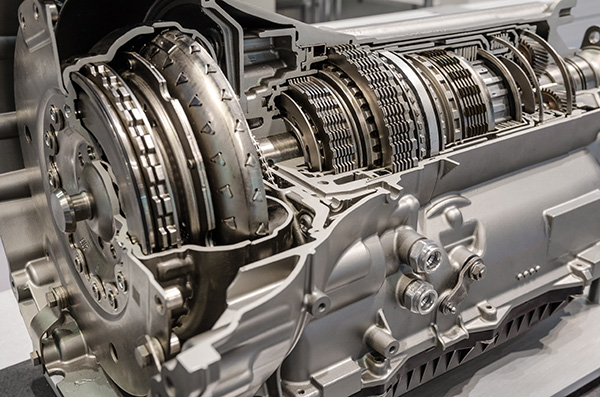
Mercedes-Benz transmissions are designed for smooth performance and precise shifting, but like any complex system, they don’t last forever. If your transmission is struggling, you might notice rough shifts, delayed acceleration, or slipping gears—signs that something isn’t right. Ignoring these early warnings can lead to costly repairs or even total transmission failure. Is your Mercedes-Benz showing signs of transmission trouble?
Delayed or Slipping Gear Shifts
One of the first signs of a transmission problem is hesitation or slipping gears when driving. You may notice that your Mercedes takes longer than usual to shift into the next gear, or the car may rev high without gaining speed.
Gear slipping happens when the transmission struggles to hold the correct gear, which can lead to poor acceleration, unpredictable shifting, and increased fuel consumption. If you notice your car struggling to stay in gear, it’s time to have your transmission inspected.
Rough or Jerky Shifting
A well-functioning transmission should shift smoothly and quietly. If you feel hard shifts, jerking motions, or abrupt gear changes, there may be a problem with the transmission fluid, solenoids, or internal components.
This issue is especially noticeable when going from park to drive, accelerating from a stop, or shifting between gears at higher speeds. Rough shifting often gets worse over time, so getting it checked early can prevent further damage.
Transmission Fluid Leaks
Mercedes-Benz transmissions rely on specialized transmission fluid to lubricate gears, prevent overheating, and enable smooth shifting. If you notice red, brown, or dark fluid pooling under your car, it could mean there’s a leak.
Common sources of transmission fluid leaks include:
- Worn-out gaskets or seals
- A cracked transmission pan
- Loose or damaged fluid lines
Low transmission fluid can cause overheating and premature wear, leading to serious internal damage. Regular fluid checks can help prevent costly repairs.
Unusual Noises While Driving
A Mercedes-Benz transmission should operate quietly, so any whining, grinding, or clunking sounds while shifting gears could indicate internal wear. Whining noises are often linked to low transmission fluid or a failing torque converter, while grinding may suggest damaged gears or clutch issues.
Burning Smell from the Engine Bay
A burning odor coming from your car could indicate overheating transmission fluid. Transmission fluid prevents excessive friction and heat, but when it degrades, the transmission can overheat, leading to internal wear and potential failure. If you smell something unusual, pull over and check your transmission fluid level as soon as possible.
Dashboard Warning Lights
Modern Mercedes-Benz vehicles are equipped with advanced diagnostic systems, meaning that if your transmission starts failing, you may see a check engine light or transmission warning message on the dashboard.
If the light comes on and is accompanied by performance issues like rough shifting or hesitation, it’s a sign that your transmission needs immediate attention.
How to Prevent Mercedes-Benz Transmission Failure
Regular maintenance and early diagnosis can help extend the life of your transmission. Here’s how to prevent major transmission problems:
- Check and replace transmission fluid as recommended in your owner’s manual.
- Avoid aggressive driving and sudden acceleration, which puts unnecessary strain on the transmission.
- Address small transmission issues early—delaying repairs can lead to expensive replacements.
Have your Mercedes-Benz serviced by a specialist who understands high-performance German transmissions.
Transmission problems can get expensive—let our professionals at CK Auto Exclusive in Santa Rosa, CA, inspect and service your Mercedes-Benz before it’s too late. Contact us today!